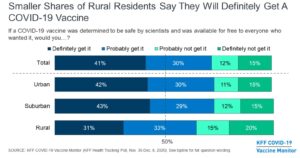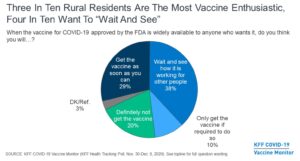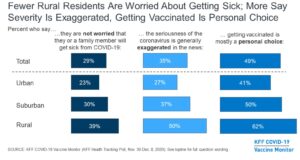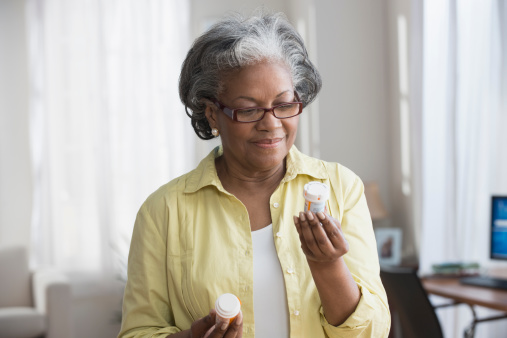 COVID-19 has added a lot of stress to everyone. From stay-at-home orders being issued, various safer at home messaging, states being shut down (some still are) and companies sending employees to work from home and starting conversations of coming back into the office in 2021. It’s no surprise that most Americans want to return back to normal.
COVID-19 has added a lot of stress to everyone. From stay-at-home orders being issued, various safer at home messaging, states being shut down (some still are) and companies sending employees to work from home and starting conversations of coming back into the office in 2021. It’s no surprise that most Americans want to return back to normal.
Throughout the pandemic, there has been progressive moves and walk backs as science was included for more data that has made a larger impact and redefined normal. Since the race for a vaccine started in 2020, vaccines have been developed, approved by the Food and Drug Administration (FDA) and some people – about 3.2 percent – have received their vaccinations. Kaiser Family Foundation (KFF) shares the different phases and recommendations proposed by the Centers for Disease and Control Prevention (CDC) and how States are choosing to distribute the vaccines to their residents.
Since the rapid research, development and release of the vaccines, some are unsurprisingly hesitant to receive them. KFF has been tracking vaccine hesitancy and the COVID-19 spread in rural areas. Throughout the pandemic, some of the hardest hit places for COVID-19 were rural areas. Rural America has had its own challenges in treating COVID-19, from a smaller number of hospitals and therefore hospital beds, less providers and limited access to telehealth. Additionally, those living in rural areas are more likely to have a chronic health condition and therefore are more susceptible to contracting COVID-19 and having more severe symptoms. “An analysis from Pew Research Center found that sparsely populated rural areas [had] twice the number of [COVID-19-related] deaths as urban areas. With the pandemic’s toll hitting rural communities hard, the findings from the December KFF COVID-19 Vaccine Monitor are [concerning]. Rural residents are among [some of] the most vaccine hesitant groups, along with Republicans, individuals 30-49 years old and [African American] adults. Individuals living in rural areas are significantly less likely to say they will get a COVID-19 vaccine that it is deemed safe and available for free than individuals living in suburban and urban America.
- 31 percent [of those living in] rural areas say they will ‘definitely get’ the vaccine, compared to 42 percent [of those living] in urban areas and 43 percent in suburban areas.
- 35 percent of people [living] in rural areas say they will ‘probably get it,’ 15 percent say they will either ‘probably not get it’ or 20 percent say they will ‘definitely not get it.’”
 Those living in rural areas “are just as likely as those living in urban and suburban communities to know someone who [either] tested positive for [or died from COVID-19].
Those living in rural areas “are just as likely as those living in urban and suburban communities to know someone who [either] tested positive for [or died from COVID-19].
- 39 percent of those living in rural America say they are not worried they or someone in their family will get sick from COVID-19, compared to 23 percent of urban residents and 30 percent of suburban residents.
- Half of those living in rural America say the seriousness of COVID-19 is ‘generally exaggerated’ compared to 27 percent of those living in urban areas and 37 percent of those living in suburban areas.
[Furthermore], 62 percent [of rural Americans view being vaccinated] as a personal choice [while] 36 percent [view it as a part] ‘of everyone’s responsibility to protect the health of others.’ 55 percent [of those living in urban areas] say that getting vaccinated is a part of everyone’s responsibility and 47 percent” of those living in suburban areas.
 Who do rural American patients trust when receiving information about the COVID-19 vaccine? According to the article:
Who do rural American patients trust when receiving information about the COVID-19 vaccine? According to the article:
- 86 percent trust their own doctor or health care provider
- 68 percent trust the FDA
- 66 percent trust the CDC
- 64 percent trust their local public health department
- 59 percent trust Dr. Fauci
- 55 percent trust government officials






